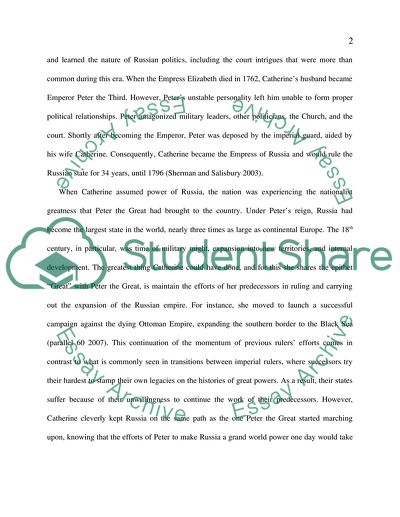Cite this document
(Catherine the Great in the Eyes of Many Historians and Scholars of Case Study, n.d.)
Catherine the Great in the Eyes of Many Historians and Scholars of Case Study. Retrieved from https://studentshare.org/biographies/1727248-catherine-the-great-in-the-eyes-of-many-historians-and-scholars-of-russian-history
Catherine the Great in the Eyes of Many Historians and Scholars of Case Study. Retrieved from https://studentshare.org/biographies/1727248-catherine-the-great-in-the-eyes-of-many-historians-and-scholars-of-russian-history
(Catherine the Great in the Eyes of Many Historians and Scholars of Case Study)
Catherine the Great in the Eyes of Many Historians and Scholars of Case Study. https://studentshare.org/biographies/1727248-catherine-the-great-in-the-eyes-of-many-historians-and-scholars-of-russian-history.
Catherine the Great in the Eyes of Many Historians and Scholars of Case Study. https://studentshare.org/biographies/1727248-catherine-the-great-in-the-eyes-of-many-historians-and-scholars-of-russian-history.
“Catherine the Great in the Eyes of Many Historians and Scholars of Case Study”, n.d. https://studentshare.org/biographies/1727248-catherine-the-great-in-the-eyes-of-many-historians-and-scholars-of-russian-history.


